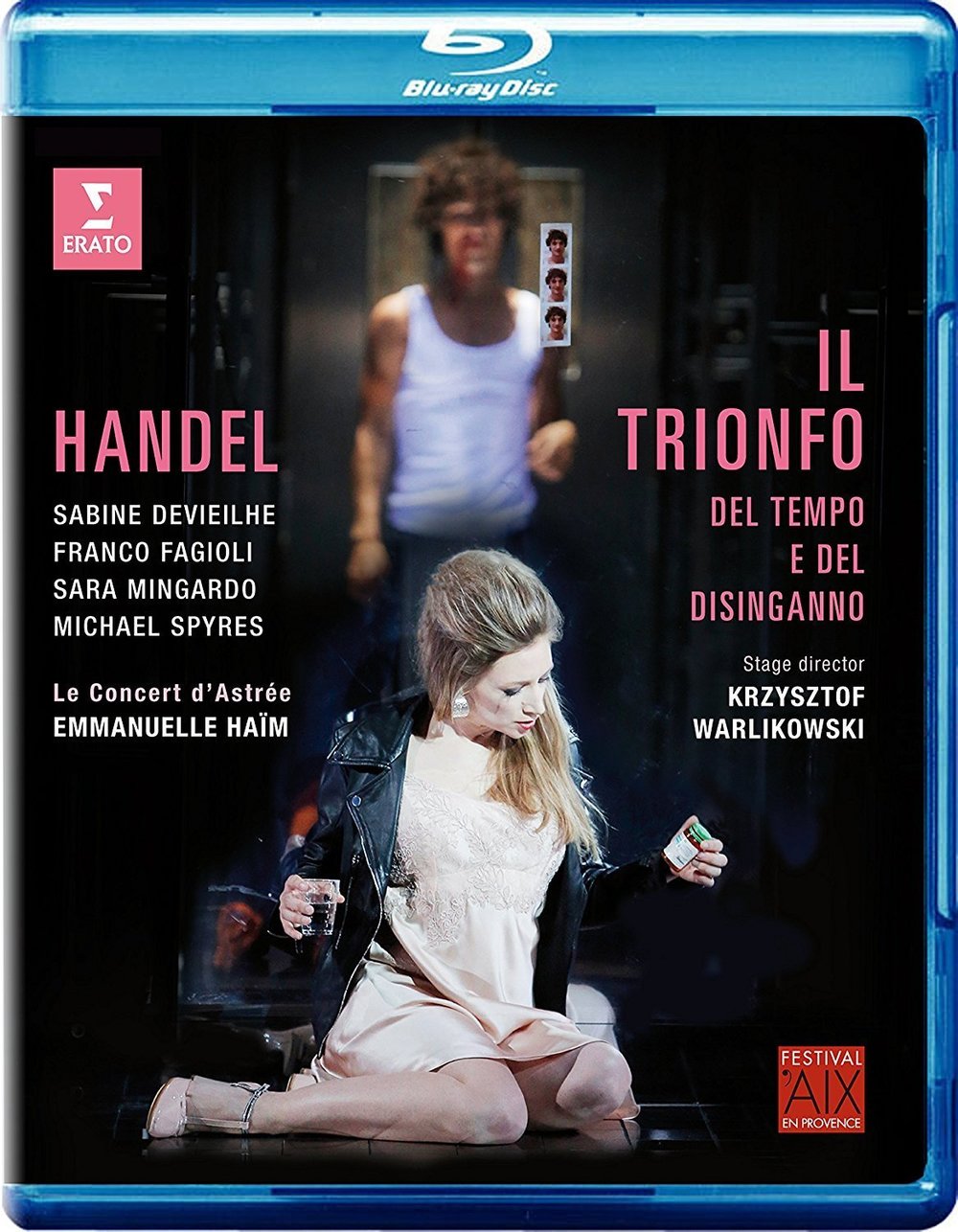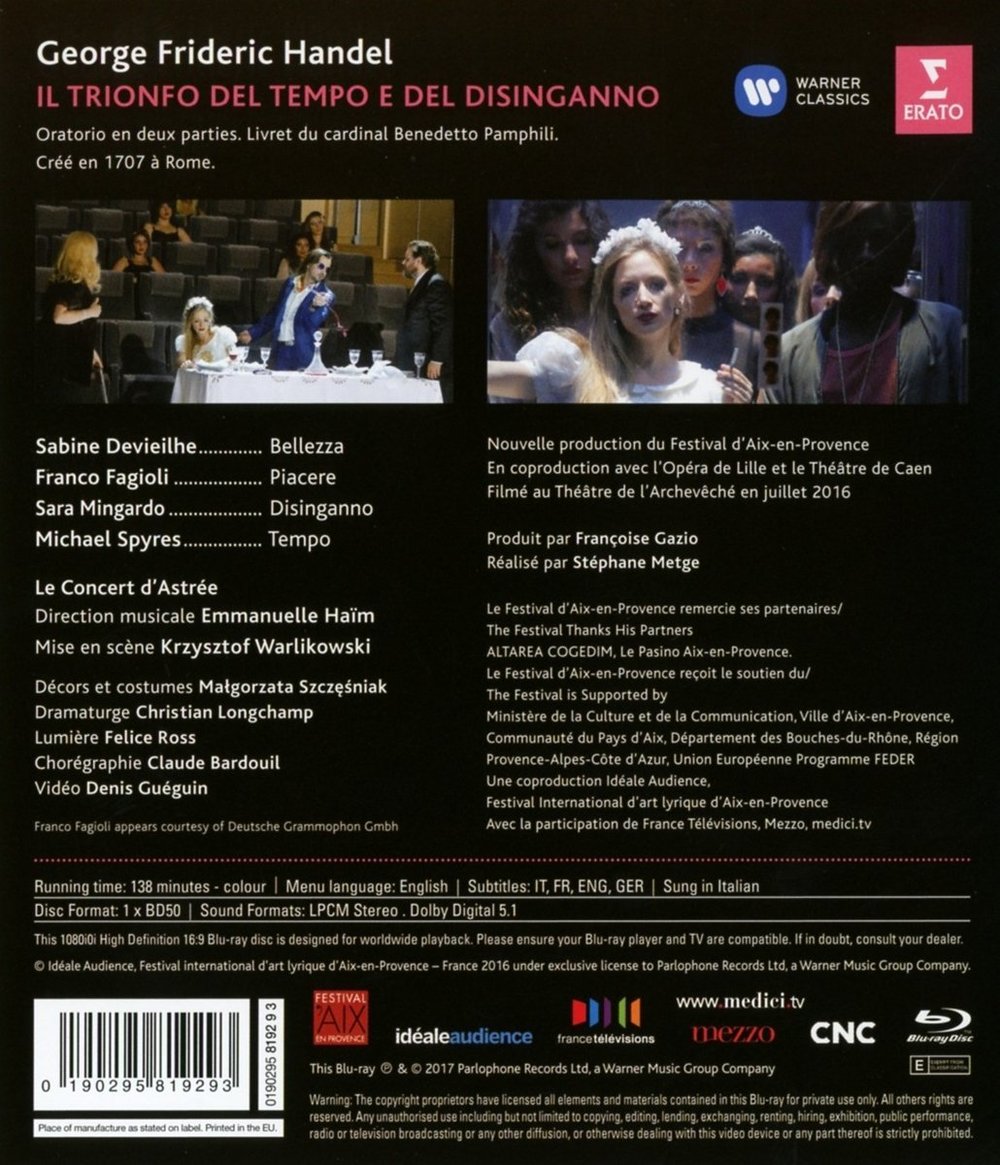

Handel Il trionfo del tempo e del disinganno (The Triumph of Time and Disillusionment) oratorio to a libretto from Benedetto Pamphili. Directed 2016 by Krzysztof Warlikowski with assistant Marielle Kahn at at the Festival d’Aix-en-Provence. Stars Sabine Devieilhe (Bellezza), Franco Fagioli (Piacere), Sara Mingardo (Disinganno), Michael Spyres (Tempo), with the participation of Christine Angot. Extras are Mama Bouras, Margot Briosne Frejaville, Sherine Colin, Johanna Costa, Léa De Carvalho Massabo, Amani Djelassi, Thaïs Drujon D’astros, Hélène Fouque, Rui Jin, Colette Levron, Elena Parniere, Pablo Pillaud-Vivien, Nangué Sabaly, Marina Saïd, and Marie Signoret-O. Emmanuelle Haïm conducts Le Concert d’Astrée. Continuo: Felix Knecht and Oleguer Aymami (Cellos); Nicola Dal Maso (Double Bass); Laura Monica Pustilnik and Rémi Cassaigne (Lutes); Benoît Hartoin and Philippe Grisvard (Harpsichords); and Benoît Hartoin (Organ). Stage and costume designs by Malgorzata Szczesniak and Barbara Creutz; dramaturge by Christian Longchamp; lighting by Felice Ross; choreography by Claude Bardouil; video designs by Denis Guéguin and Fabien Laubry; musical assistance was by David Bates; language coaching by Rita de Letteriis. Directed for TV by Stéphane Metge; produced by Françoise Gazio. Sung in Italian. Released 2017, disc has 5.1 dts-HD Master Audio sound. Grade: NA
Handel wrote 3 versions of Trionfo:
Il trionfo del tempo e del disinganno (Triumph of Time and Disillusionment). This was his first oratorio.
Il trionfo del tempo e della verità (Triumph of Time and Truth)
Triumph of Time and Truth (everything reviewed and rewritten in English). This was his last oratorio!
Subject title is the first oratorio, where it all began, in which Handel originally closely followed the Catholic libretto about the victory of beauty over the temptations of sex. But as David Vickers shows in the September 2017 Gramophone at page 90, "None of the moral that godly virtue is preferable to carnal selfishness survives in Krzystaf Warlikowsk's rigidly subversive staged production." So in Aix-en-Provence Beauty winds up cutting her wrists and bleeding to death at the end of a production that Vickers finds to be "convoluted, clumsy, crass, and joyless." Well, that at least explains why this Aix-en-Provence show has generated so much interest.
There is a ton of stuff on YouTube showing the aggressive staging of this oratorio, but I can't find anything I can connect for sure to subject disc. To get a some idea about this, consider these two clips: